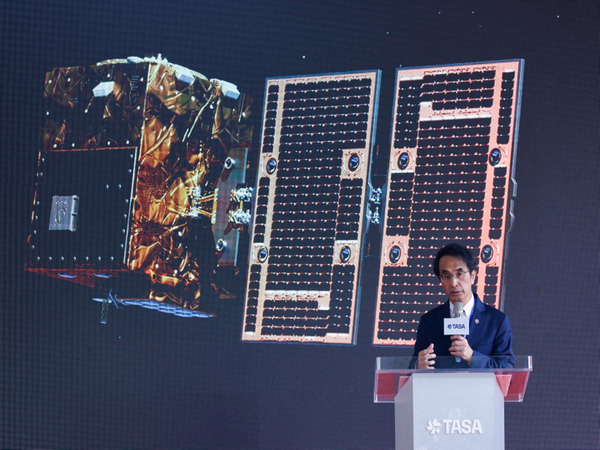Taiwan, May 5 : Amid the persistent tensions with China, Taiwan is forging ahead with an ambitious venture: the development of its own satellite network, aimed at safeguarding the island’s connectivity during emergencies, CNN reported.
In an exclusive interview with CNN, Wu Jong-shinn, director-general of the Taiwan Space Agency (TASA), revealed that Taiwan is currently in the experimental stages of constructing indigenous communication satellites.
Once operational, this system promises to emulate the functionality of Elon Musk’s Starlink satellite constellation, albeit on a smaller scale, according to Wu, who has been at the helm of Taiwan’s space initiatives since 2021. Starlink, managed by Musk’s SpaceX, has garnered international attention for its ability to provide internet access to remote areas worldwide.
Taiwan’s endeavour stems partially from its inability to access Starlink due to legal constraints; SpaceX’s insistence on majority ownership in a proposed joint venture clashed with Taiwanese regulations, prompting Taiwan to pursue its own technological solutions.
“The communication satellite is very important for our communication resilience during urgent periods,” Wu said, calling it his agency’s most sensitive project. “That’s very important for us, so we take it very, very seriously.”
With Beijing’s persistent claims over Taiwan and threats of military action, the need for an autonomous communication infrastructure is paramount.
Presently, Taiwan relies on 15 submarine internet cables for connectivity, a system vulnerable to disruptions, as demonstrated by an incident last year when outlying islands were cut off from the internet for weeks due to cable damage. Experts have cautioned that intentional sabotage by Beijing could trigger widespread panic and disruption of regular communications, as reported by CNN.
To address these vulnerabilities, Taiwan announced plans for the development of two communication satellites, with the first slated for launch by 2026. However, experts suggest that hundreds of satellites would be needed to ensure uninterrupted backup internet access. Brad Tucker, an astrophysicist at Australian National University, estimated that at least 50 satellites would be required for “fairly decent” emergency coverage, underscoring the scale of the endeavour.
Su Tzu-yun, a director at Taiwan’s Institute for National Defence and Security Research, acknowledged the challenge of achieving comprehensive internet coverage with a limited number of indigenous satellites. Nevertheless, he emphasized the strategic value of Taiwan’s foray into the space industry, enabling greater flexibility for military communications and bolstering the island’s technological prowess.
In the interim, Taiwan plans to collaborate with international satellite providers like OneWeb to ensure backup connectivity during emergencies. Efforts to bolster communication resilience include the establishment of 700 hot spots across the island by the end of 2024, facilitating satellite communications during crises.
The recent magnitude 7.4 earthquake that struck eastern Taiwan underscored the importance of such measures, as authorities successfully utilized OneWeb to provide emergency internet access for rescue operations, according to CNN.
Looking ahead, Taiwan’s space ambitions extend beyond communication satellites. President Tsai Ing-wen’s announcement of a substantial investment in the island’s space programs reflects a broader strategy to harness Taiwan’s technological expertise, particularly in semiconductor manufacturing, for space-related ventures.
Wu highlighted Taiwan’s advantageous position as a leader in advanced semiconductor chips, citing the prowess of companies like Taiwan Semiconductor Manufacturing Company (TSMC). Leveraging expertise in information technology and precision machinery, Taiwan aims to carve a niche for itself in the global space industry.
To expedite progress, Taiwan’s space agency is developing a launch vehicle to deploy satellites into low-Earth orbit, aiming for initial launches by 2030. Wu expressed confidence in Taiwan’s capabilities, affirming readiness to pursue space endeavors more assertively.
As Taiwan navigates the complexities of its geopolitical landscape, its pursuit of a homegrown satellite network stands as a testament to its resilience and determination to safeguard its connectivity and technological independence, CNN reported. (Agencies)


